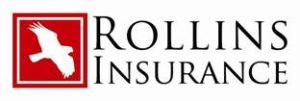 Homeownership is an exciting milestone, but it also comes with financial responsibilities. One of these responsibilities is obtaining homeowners insurance. While it may seem like an additional cost, mortgage lenders require homeowners insurance to protect their investment and ensure that you can rebuild your home in case of a devastating event. In this article, we will explore why mortgage lenders require homeowners insurance, the specific requirements they have, and how you can navigate the process to protect your investment and secure your home.
Homeownership is an exciting milestone, but it also comes with financial responsibilities. One of these responsibilities is obtaining homeowners insurance. While it may seem like an additional cost, mortgage lenders require homeowners insurance to protect their investment and ensure that you can rebuild your home in case of a devastating event. In this article, we will explore why mortgage lenders require homeowners insurance, the specific requirements they have, and how you can navigate the process to protect your investment and secure your home.
Why Do Mortgage Lenders Require Homeowners Insurance?
When you take out a mortgage to buy a home, the lender has a vested interest in the property until you pay off the loan. They want to protect their investment and ensure that their financial interests are covered in case of a catastrophic event. Homeowners insurance provides the necessary coverage to rebuild or repair your home if it is damaged or destroyed by fire, natural disasters, or other covered perils.
Protecting the Lender’s Investment
Mortgage lenders require homeowners insurance because they have a financial stake in your property until the loan is fully paid off. If your home is severely damaged or destroyed, the lender wants to ensure that they can recoup their investment. By requiring homeowners insurance, the lender can be confident that their financial interests are protected.
Ensuring Continuous Coverage
Another reason mortgage lenders require homeowners insurance is to ensure that you maintain continuous coverage on your property. If you were to let your insurance lapse, the lender’s investment would be at risk. By requiring homeowners insurance, the lender can rest assured that the property is adequately protected throughout the life of the mortgage.
Mortgage Lender Requirements for Homeowners Insurance
Now that we understand why mortgage lenders require homeowners insurance, let’s take a closer look at the specific requirements they have.
Maintaining Minimum Coverage
When you have a mortgage, the lender will typically require you to have a minimum amount of dwelling coverage. This coverage ensures that the structure of your home is protected in case of damage or destruction. The minimum coverage amount is usually determined based on the value of your home and the amount of equity you have in it.
For example, if you purchase a home for $250,000 and put down $25,000 as a down payment, the lender may require you to have at least $225,000 in dwelling coverage. However, it is often recommended to ensure the full value of your home, or even more, to provide comprehensive protection.
While dwelling coverage is the only type of homeowners insurance technically required by lenders, it is also advisable to consider additional coverage to protect your personal belongings, liability, and other potential risks.
Additional Required Coverage
In addition to dwelling coverage, mortgage lenders may require you to have additional coverage depending on the location and specific risks associated with the property. For example, if you live in a flood-prone area, the lender may require you to have flood insurance. Similarly, if you reside in an earthquake-prone region, earthquake insurance may be mandatory.
These additional coverage requirements aim to protect the lender’s investment and ensure that your home remains adequately insured against potential perils.
Loss Payee Requirement
When you have a mortgage, your lender will also require you to add them as a loss payee on your homeowners insurance policy. This means that in the event of a covered claim, the insurance company will issue payment to both you and the lender. By being named as a loss payee, the lender can ensure that they receive the necessary funds to cover their investment in case of a loss.
The Difference Between Mortgage Insurance and Home Insurance
It’s important to note that mortgage insurance and homeowners insurance are not the same. While both types of insurance are related to homeownership, they serve different purposes.
Mortgage Insurance
Mortgage insurance, also known as private mortgage insurance (PMI), protects the lender if you default on your mortgage payments. It is typically required if you have less than 20% equity in your home or if you are refinancing with less than 20% equity. Mortgage insurance reimburses the lender for the outstanding loan balance if you are unable to make your mortgage payments.
Homeowners Insurance
On the other hand, homeowners insurance provides coverage for your home, personal belongings, liability, and additional living expenses if your home becomes uninhabitable due to a covered peril. It protects your investment and provides financial assistance to repair or rebuild your home in case of damage or destruction.
While mortgage insurance protects the lender, homeowners insurance safeguards your property and provides you with peace of mind knowing that you are financially protected against unforeseen events.
How to Navigate the Homeowners Insurance Process
Navigating the homeowners insurance process can be overwhelming, but with the right approach, you can secure the coverage you need to protect your investment. Here are some steps to help you navigate the process:
Research and Compare Insurance Providers
Start by researching different insurance providers and comparing their coverage options, rates, and customer reviews. Look for reputable insurance companies with strong financial ratings and a track record of excellent customer service.
Determine Your Coverage Needs
Evaluate your coverage needs based on the value of your home, your personal belongings, and any additional risks associated with your property. Consider factors such as the location, climate, and potential hazards in your area.
Obtain Multiple Quotes
Obtain quotes from multiple insurance providers to ensure that you are getting the best coverage at a competitive price. Compare the coverage limits, deductibles, and policy terms to make an informed decision.
Review Policy Exclusions and Limitations
Carefully review the policy exclusions and limitations to understand what is covered and what is not. Pay attention to specific perils, deductibles, and any additional endorsements or riders that may be necessary for comprehensive coverage.
Work with an Insurance Agent
Consider working with an insurance agent who specializes in homeowners insurance. An agent can guide you through the process, explain complex terms and coverage options, and help you find the best policy for your needs.
Provide Documentation to Your Lender
Once you have selected an insurance policy, provide the necessary documentation to your lender to fulfill their requirements. This may include proof of coverage, policy details, and adding the lender as a loss payee.
Review and Update Your Policy Regularly
Periodically review your homeowners insurance policy to ensure that it still meets your needs. As the value of your home and personal belongings may change over time, it is essential to update your policy accordingly.
Homeowners insurance is a crucial requirement for mortgage lenders to protect their investment and ensure that your home is adequately covered in case of damage or destruction. By understanding the specific requirements and navigating the homeowners insurance process, you can safeguard your investment and enjoy the peace of mind that comes with comprehensive coverage. Remember to research and compare insurance providers, determine your coverage needs, and work with an insurance agent to find the best policy for your unique situation. By prioritizing homeowners insurance, you can protect your investment and secure your home for the future.
Contact us (859-781-7283) for more information or get a free quote!
—
 About Rollins Insurance
About Rollins Insurance
Rollins Insurance is an independent insurance agency providing our clients the best prices with the most coverage possible since 2008. We represent multiple A-rated insurance companies to make sure we deliver the most competitive rate packages to our clients in Kentucky and Ohio. We find that most people are under-insured and over-paying when we meet them. We love what we do and our primary business is Personal Auto, Homeowners, and Life and Health insurance. We are a family-owned and managed business that specializes in providing needs-based insurance services.
>> Learn More About Us and Our Staff
